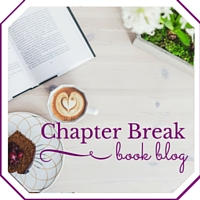
Author: Victoria Walker
Narrator: Kim Bretton
Length: 5 hours and 34 minutes
Publisher: Victoria Clayton Limited
Series: Sebastian and Melissa, Book 2
Released: Jul. 22, 2020
Genre: Fantasy; Children’s

The sequel to The Winter of Enchantment and the return of Mantari the magic cat.
Sebastian and Melissa would never forget their arrival at the house called Hadlows. The long drive through the neglected park and woodland, the lake glimpsed through trees, the house, with its “thousand windows” looking down on them and the great hall, empty but for the portraits covering the walls. Hadlows held a secret, of that they were sure.

Victoria Walker was twenty-one when she wrote The Winter of Enchantment in 1968. A second story about Sebastian and Melissa, The House Called Hadlows, was published in 1972. In 1973 she went to Cambridge University to read English and married immediately after finishing her degree. Two children followed and two decades passed before she began to write under her married name of Victoria Clayton. She lives with her husband in Northamptonshire.

 Kim is an accomplished and award winning actress and director with West End/Broadway theatre credits. Kim has narrated over 35 audiobooks and counting. She is also an in demand voice over talent in the commercial and corporate arena and owns her own class A recording studio in Nashville. Kim is from the UK but has lived in NYC, L.A. and now Nashville TN. She continues to work in Theatre, Film and TV as an actress and a director alongside narrating audiobooks and commercial voice overs.
Kim is an accomplished and award winning actress and director with West End/Broadway theatre credits. Kim has narrated over 35 audiobooks and counting. She is also an in demand voice over talent in the commercial and corporate arena and owns her own class A recording studio in Nashville. Kim is from the UK but has lived in NYC, L.A. and now Nashville TN. She continues to work in Theatre, Film and TV as an actress and a director alongside narrating audiobooks and commercial voice overs.

By Victoria Clayton, March 2007
Those readers who were patient enough to persevere to the end of the introduction to The Winter of Enchantment may recall that The House Called Hadlows was written at the kitchen table of a tumble-down farmhouse in a valley in wildest Wales in the company of a Polish Count and an involuntary assassin. I thought rather more about the plot of this second book before I wrote it and it is a little more polished in consequence. As the rain poured and the fields became liquid mud and only the bracken flourished I pursued Sebastian, Melissa and Mantari through another set of adventures and derived much comfort from them to set against the insuperable difficulties of looking after forty cows and two hundred sheep with the help of two incompetents. I was of course hopelessly inexperienced myself. Before I moved to Wales I spent a short time living in a water mill just outside Hadlow Down in Sussex. It was a very pretty place, four storeys of a room apiece with an overhanging jetty at the top, painted clapboard inside and out. It was surrounded by tall trees and might have been a painting by Constable or a setting for a novel by George Eliot. The only drawback was the noise. Night and day the water from the mill race that debouched into the pond with a drop of ten feet or so roared in one’s ears like the torture of tinnitus until one became distracted to the point of madness. The iimillers of the past had gone home at the end of the day, of course, and so saved their sanity. Anyway, the experience provided part of the title of The House Called Hadlows.It was after the collapse of the Welsh enterprise and a lonely sojourn on Skye that I decided to read English at Cambridge University. This was in the days when Oxbridge didn’t care much about your A levels but much more about what assessment they made of you. I wrote an essay entitled The Wise Man Learns from the Experience of Others. I wrote reams but I got into rather a muddle and came to no conclusion. The interview that followed was nerve-wracking. I was given a Shakespearean sonnet to talk about but such was my state of anxiety that I could make nothing of it. The words trickled through my brain without making any sense. I asked if I could have a cigarette to help me to concentrate. Lifted eyebrows; sighs, frowns, all the windows were opened; I lit up. Silence while we all waited for Gauloise-fuelled brilliance from me. Nothing. I still couldn’t understand a word. It was terribly humiliating. One of the dons took pity and asked me about my life and achievements so far. I gave a Bowdlerized version, making as much as I could of the publication of The Winter of Enchantment and The House Called Hadlows, skating over the rest with proper reticence. I was astonished to be offered a place a few weeks later.Cambridge changed my life, undoubtedly for the better. As far as learning anything went, I was not a particularly diligent student. I still don’t know how to structure an essay and almost every one was written hastily in the six hours before it was due to be handed in. But the ethos was tolerant and inclusive and having been persona nongrataat my hidebound, class-bound, anti-intellectual school it was refreshing to find oneself accepted by authority. What difficulties there were during those three years were the result of a characteristic bit of woolly thinking on my part. Before moving to Cambridge I spent a few months in a rented house in Shropshire; a romantic black and white fifteenth century building on the slopes of a wooded valley. At its head were the Stiperstones, a windy ridge home to curlews and skylarks. At its summit is the Devil’s Chair. Legend says that whenever it is hidden by mist the devil sits there. I used to walk up there on my own quite a bit. It is a place of sinister beauty and I was not altogether surprised when I met one day a dark-visaged man to whom I was immediately attracted. Certainly he was not the devil. He was, more prosaically, a Kurd.At first his being of a different nationality, race and culture was a definite plus. In those days I wanted to believe that good communication was all that was required to banish strife and brutality and racism from the world. I was after all a flower child, albeit by this time rather an old one at twenty-five. The dark visaged one was a Cambridge graduate. He was handsome, clever and charming — a divine combination, you might think. Everything he told me about Mesopotamia sounded extravagantly exotic —love in a glamorous, kilim-decorated tent; eating pomegranates beneath a sinking desert sun. I thought our differences were fascinating but essentially superficial. In all important ways we shared interests that transcended cultural divergences.In fact it was quite the other way round. What I discovered when I embarked on what turned out to be a slalom (interesting, instructive but downhill) of a love affair was that the things we had in common — shared tastes in books, art, music, jokes, architecture — were relatively unimportant. Our differences were ethical and therefore fundamental. For one thing we had opposing views about the relative importance of men versus women. Being of the generation that had embraced Women’s Lib with fervour I was not pleased to find myself rated just above beasts of burden but lower than an opium-stewed wife-beating pavement barber in a back-street bazaar.But it certainly wasn’t all bad. We liked each other at intervals and we taught each other much that was useful. I bought a dilapidated cottage in the country, ten miles from Cambridge. It was thatched and white-washed with gables that leaned so far from the vertical that special insurance was needed before builders would agree to work on it. I enjoyed unbricking fireplaces and staircases and making my first garden. In spare moments I went to supervisions and read books, took exams. There is an awful lot of English literature. I suppose writing as a career is in some ways a soft option if you don’t care about being rich. It requires nothing more than a pencil and paper and you can do it at home in your dressing gown surrounded by unmade beds and unwashed dishes if that is your preferred domestic style. You require no training and no qualifications. So, it isn’t surprising that the written word abounds and the poor student is obliged to ‘do’ vthe Metaphysical poets in a fortnight and Shakespeare in a term. Of course we just skimmed the surface but what we did learn was roughly how, when and where writers of fiction and history and philosophy fitted in with each other and how to use a library properly. A university course gives you a map and pointers but education is the stuff you put in your own head by reading and thinking all your life long. I made new friends, my life took on a respectability, almost, which I found unexpectedly restful. The dark-visaged one came and went, sometimes delightful, sometimes swinish.It came to a parting of the ways. I barely had time to make a pyre of his collar stiffeners and restaurant receipts before I met the man who has nobly put up with me for thirty years. Nothing is more tedious to read about than a happily married couple so I shall draw a veil over the success or failure of this relationship. Two children, lots of cats and chickens and three moves later we live in a small seventeenth century manor house in Northamptonshire. It has been an amusing exercise to recall the far-off days of my youth as a background to The Winter of Enchantment and The House Called Hadlows, which I hope may have entertained some readers. Now I fill my days writing and gardening, which, ever since I read about Vita Sackville-West doing it, has seemed to me an ideal way to pass the time. For twenty-five years I published nothing. It wasn’t a conscious decision. I found my time fully occupied looking after the children, the livestock: domestic things. But when my son went away to school and my daughter preferred to spend her leisure hours with her pony rather than with me. Suddenly there was hiatus. I started to write for adults and have had six novels published under my married name, Victoria Clayton. A seventh is due in September 2007. A misspent, misguided and wholly idiotic youth have actually proved quite useful in furnishing insights into the vagaries of the human heart.To those who write but haven’t yet found a market, I urge you not to be put off by the stumbling attempts of the industry to identify the Zeitgeist. There is so much luck in it that no one can predict what will happen. My own idea is that one should never write for money, and always write what comes into one’s head first. Keats had a word for it: two, actually — negative capability — which roughly means a deliberate open-mindedness. You make your mind as blank as possible and see what comes into it without trying to be clever or rational. You can tidy it up later. The results are usually surprising. If you have been discouraged by rejections from agents or publishers, gird up your loins and go to: writing is lonely and difficult and discouraging most of the time but the hideous effort isprobably worth it. At least you find out a heck of a lot about yourself, which can only be profitable.

Click here to view the full tour schedule!
Plugging you into the audio community since 2016.
Sign up as a tour host here.










[…] Oct. 7th: Turning Another Page (Review, Spotlight + Audio Excerpt) Chapter Break (Spotlight + Audio Excerpt, Narrator Interview) […]